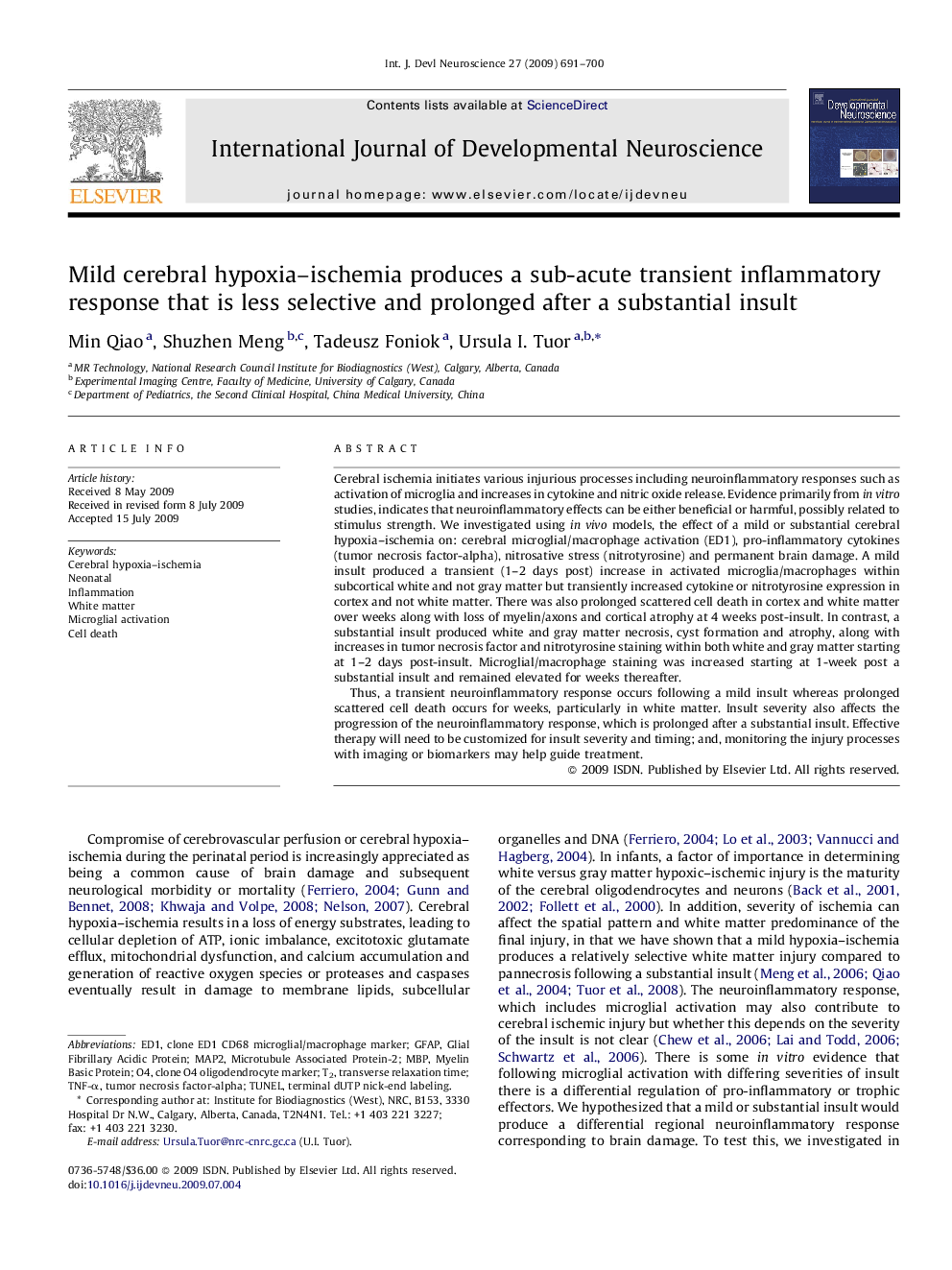| Article ID | Journal | Published Year | Pages | File Type |
|---|---|---|---|---|
| 2786253 | International Journal of Developmental Neuroscience | 2009 | 10 Pages |
Cerebral ischemia initiates various injurious processes including neuroinflammatory responses such as activation of microglia and increases in cytokine and nitric oxide release. Evidence primarily from in vitro studies, indicates that neuroinflammatory effects can be either beneficial or harmful, possibly related to stimulus strength. We investigated using in vivo models, the effect of a mild or substantial cerebral hypoxia–ischemia on: cerebral microglial/macrophage activation (ED1), pro-inflammatory cytokines (tumor necrosis factor-alpha), nitrosative stress (nitrotyrosine) and permanent brain damage. A mild insult produced a transient (1–2 days post) increase in activated microglia/macrophages within subcortical white and not gray matter but transiently increased cytokine or nitrotyrosine expression in cortex and not white matter. There was also prolonged scattered cell death in cortex and white matter over weeks along with loss of myelin/axons and cortical atrophy at 4 weeks post-insult. In contrast, a substantial insult produced white and gray matter necrosis, cyst formation and atrophy, along with increases in tumor necrosis factor and nitrotyrosine staining within both white and gray matter starting at 1–2 days post-insult. Microglial/macrophage staining was increased starting at 1-week post a substantial insult and remained elevated for weeks thereafter.Thus, a transient neuroinflammatory response occurs following a mild insult whereas prolonged scattered cell death occurs for weeks, particularly in white matter. Insult severity also affects the progression of the neuroinflammatory response, which is prolonged after a substantial insult. Effective therapy will need to be customized for insult severity and timing; and, monitoring the injury processes with imaging or biomarkers may help guide treatment.
